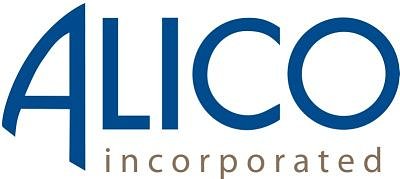
Florida's Wildlife Gets a Boost: Alico & FDOT Build Critical Panther Underpass
A new wildlife underpass in Southwest Florida aims to connect fragmented habitats and safeguard the future of the endangered Florida panther. A look at the innovative public-private partnership driving the project.
Florida’s Wildlife Gets a Boost: Alico & FDOT Build Critical Panther Underpass
COLLIER COUNTY, FL – In a significant victory for conservation, Alico, Inc. and the Florida Department of Transportation (FDOT) are collaborating on a vital wildlife underpass on State Road 82 in Collier County. The project, lauded by conservationists, aims to reconnect fragmented habitats and offer a safe passage for the endangered Florida panther and other native wildlife.
Beyond simply providing a crossing, the initiative represents a growing trend towards innovative public-private partnerships that prioritize both infrastructure development and environmental stewardship. The $5 million contribution from Alico underscores a shift in thinking, recognizing the long-term benefits of coexisting with and protecting Florida’s unique biodiversity.
Reconnecting a Fragmented Landscape
The Florida panther, once on the brink of extinction, has seen a slow but steady recovery in recent decades. However, its survival remains precarious, largely due to habitat fragmentation. As development encroaches upon natural areas, vital corridors are severed, isolating panther populations and hindering their ability to find mates, food, and suitable territory. Vehicle collisions also pose a significant threat, with State Road 82 being a known hotspot.
“Habitat connectivity is absolutely critical for the panther’s long-term survival,” explains a local conservation biologist, speaking anonymously. “This underpass isn’t just about allowing animals to cross a road; it's about ensuring the genetic health and viability of the entire population.”
The new 16-foot-wide by 7-foot-high underpass is strategically placed in an area identified as a key movement corridor for panthers, as well as deer, bobcats, and other native species. By providing a safe and reliable crossing, the project aims to reduce wildlife-vehicle collisions and allow animals to move freely between fragmented habitats.
A Model for Public-Private Collaboration
The partnership between Alico and FDOT is gaining attention as a potential model for future conservation efforts. Traditionally, funding for wildlife crossings and habitat restoration has relied heavily on public sources. However, with increasing demands on state and federal budgets, innovative funding mechanisms are needed.
“This is a win-win situation,” says a representative from the FDOT, speaking on background. “Alico recognizes the value of preserving Florida’s natural environment, and we are able to leverage their investment to enhance our infrastructure projects.”
Alico’s contribution is particularly noteworthy given its shift from traditional agricultural operations to a diversified land management and real estate development company. The company’s commitment to incorporating conservation into its development plans demonstrates a growing awareness of the economic and ecological benefits of sustainable practices.
“We believe that responsible development and environmental stewardship are not mutually exclusive,” states a company spokesperson. “This project is a testament to our commitment to creating communities that coexist harmoniously with nature.”
Beyond the Underpass: A Holistic Approach
While the wildlife underpass is a crucial component of the conservation effort, experts emphasize that it’s just one piece of the puzzle. A holistic approach is needed to address the broader threats facing the Florida panther and other endangered species.
“The underpass is great, but it won’t solve all the problems,” warns an independent wildlife researcher. “We need to focus on protecting and restoring existing habitats, reducing human encroachment, and addressing the underlying causes of habitat fragmentation.”
Efforts are underway to expand the network of connected habitats through land acquisition, conservation easements, and habitat restoration projects. The Florida Wildlife Corridor initiative, a collaborative effort involving conservation groups, government agencies, and private landowners, is playing a key role in these efforts.
The initiative aims to connect protected areas and create a continuous network of natural habitats across the state, allowing wildlife to move freely and maintain healthy populations.
The Future of Florida’s Wildlife
The success of the Alico-FDOT partnership and the ongoing conservation efforts offer a glimmer of hope for the future of Florida’s wildlife. However, continued investment and collaboration are essential to ensure the long-term survival of endangered species like the Florida panther.
“The panther’s story is a reminder that conservation is not just about protecting animals; it’s about protecting our own future,” says a local conservation advocate. “We all have a role to play in ensuring that Florida’s natural heritage is preserved for generations to come.”
The new wildlife underpass serves as a tangible symbol of this commitment – a testament to the power of collaboration, innovation, and a shared vision for a sustainable future. It’s a hopeful sign that even in a rapidly changing landscape, it’s still possible to create a world where both humans and wildlife can thrive.
